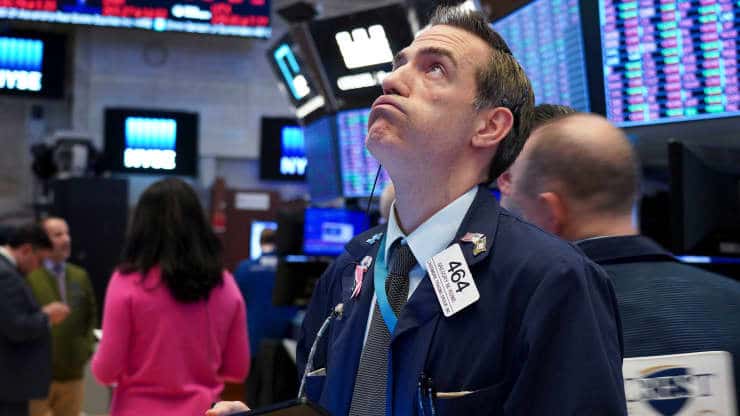The International Monetary Fund has warned of further turbulence ahead for financial markets, particularly as governments around the world shift gears into recovery mode.
Central banks’ moves to tighten monetary policy and curb rising inflation could push riskier stocks deeper into the red even as policymakers pledge a smooth transition, the IMF’s Tobias Adrian, financial counsellor and director of monetary and capital markets, told CNBC’s Geoff Cutmore.
“We could certainly see further tightening of financial conditions, and that means that risk assets such as equities could sell off further,” Adrian said.
The market reaction will hinge largely on central banks’ ability to communicate their intentions, Adrian said, urging order and transparency.
On Wednesday, the Federal Reserve signaled that it could halt its asset purchasing program and start raising interest rates as soon as March.
“This is hopefully not going to be disorderly, but it’s going to be an orderly adjustment in terms of valuations,” he said.

Zhang Mocheng | Xinhua | Getty Images
“We are estimating, for example, for an unexpected further tightening of 50 basis points you could see a substantial further sell-off in the equity markets,” he added, noting that some sectors would be worse affected than others.
Such disruption could translate into crypto markets too, Adrian said, which have exhibited an “increase in correlations” with traditional financial markets and have witnessed a major sell-off this year.
Adrian’s comments come as the IMF released on Thursday its Global Financial Stability report. It follows the release of its World Economic Outlook earlier this week, which downgraded global growth to 4.4% in 2022.
Despite downward pressure from rising interest rates, Thursday’s report noted that corporate earnings are forecast to surpass pre-pandemic levels in 2022 in most sectors.
Meanwhile, bond spreads —a key metric for measuring the price of a group of bonds — remain below average 2019 levels.
“We have certainly seen capital flows through many emerging markets slow down already in the past three months, and we could see a further slowdown going forward,” Adrian said.
Inflationary pressures within emerging markets have also led many central banks to raise policy rates, putting nascent growth recovery at risk.
“Such further tightening of domestic financial conditions at a time of high fiscal deficits and external financing needs could generate significant strains,” the report said.

